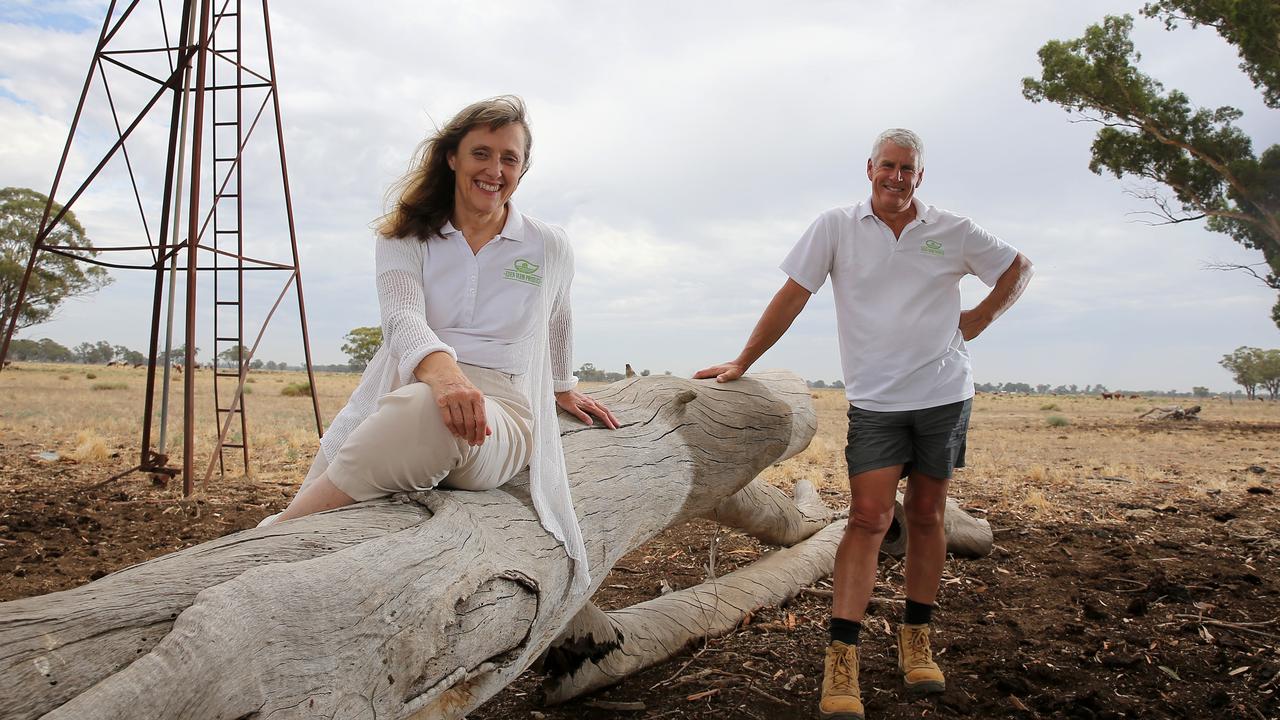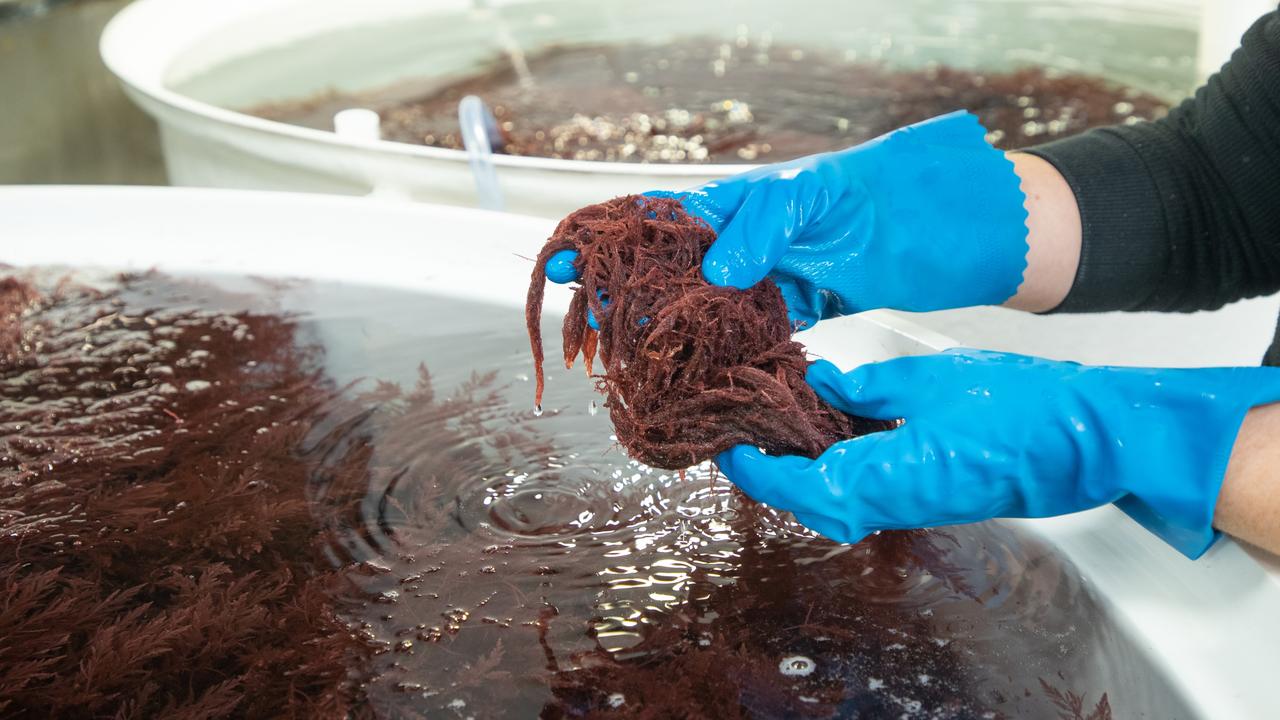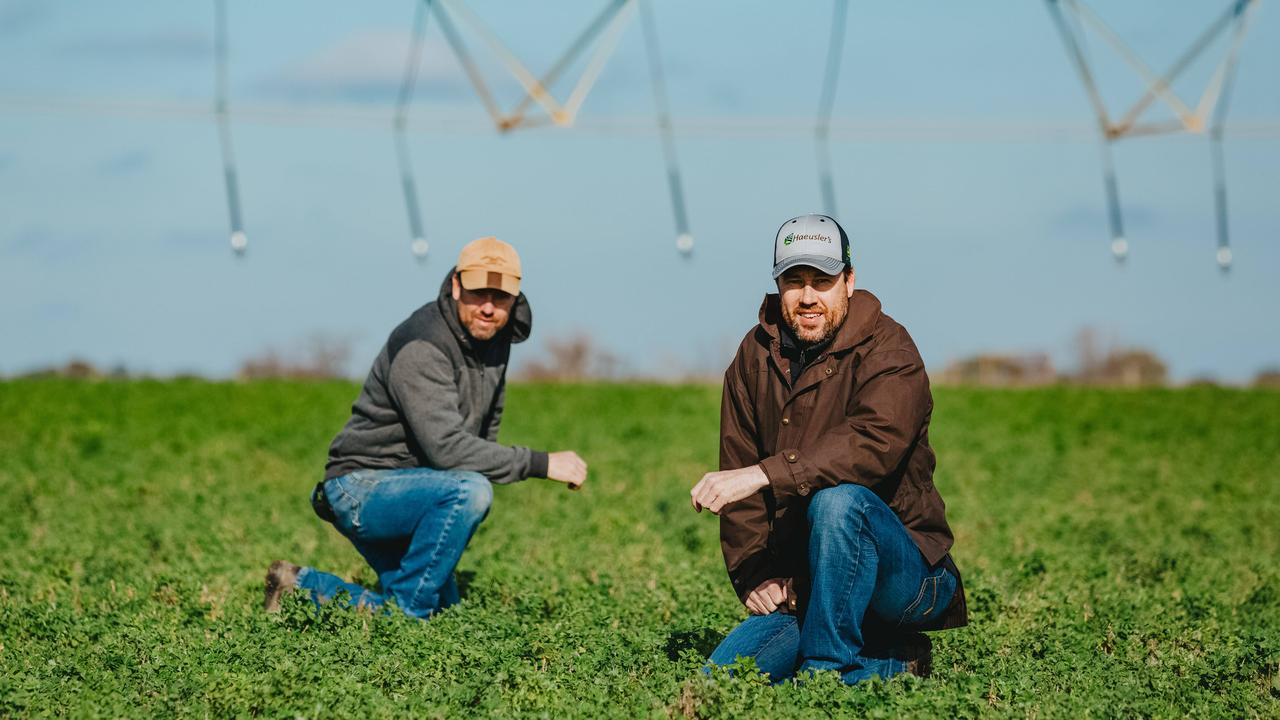Baker’s biodynamic on-farm business a family affair at Numurkah
A BIODYNAMIC, chemical-free approach is paying dividends for the Baker family, whose pursuit of personal health has expanded into a thriving on-farm business, writes SARAH HUDSON.
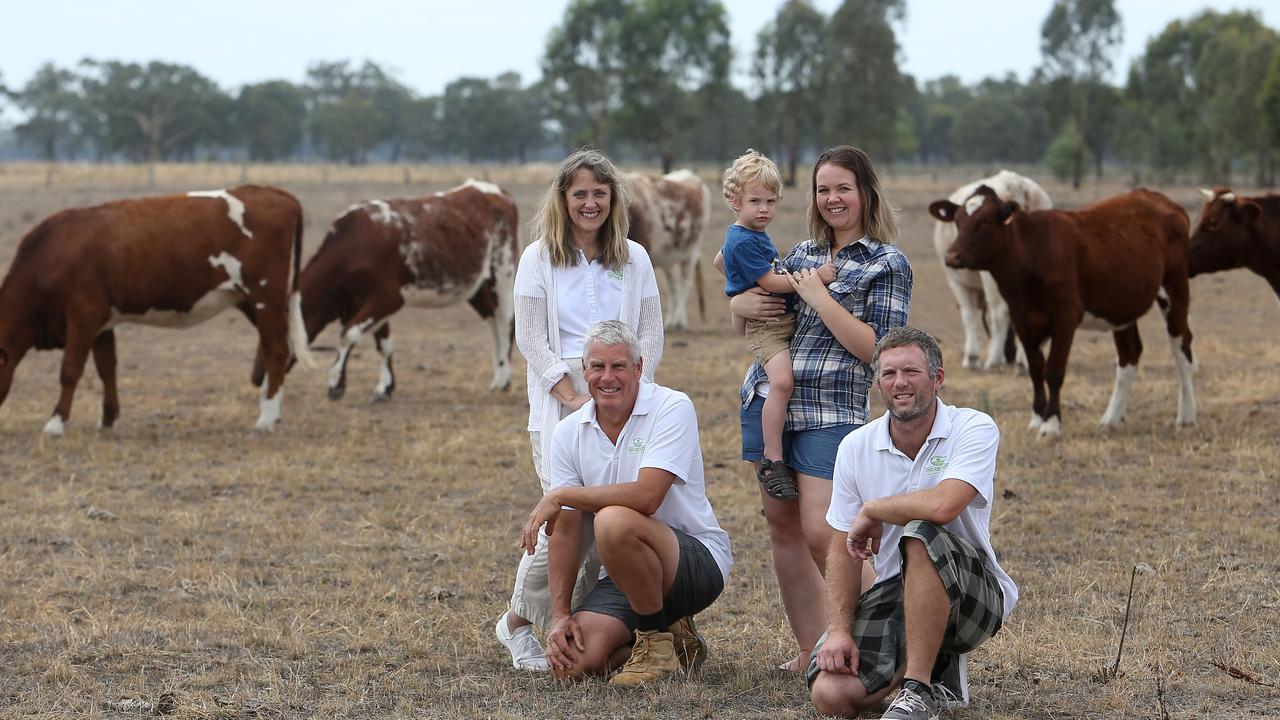
NOTHING on the Baker family’s 60-hectare farm at Numurkah is done conventionally.
Take Gary and Sue’s farming method: biodynamic, a system developed in the 1920s by Austrian Rudolph Steiner, which emphasises the relationship between soil, plants, animals and the lunar and solar systems.
Their herd of 50 beef cattle is unorthodox: Shorthorn crossed with the Maine-Anjou French breed of cattle, with son Daniel planning to open a Maine-Anjou stud in coming years on his neighbouring 36 hectares.
The Bakers’ vegetable crops, too, are a little quirky — including popping corn, spaghetti squash, purple sprouting broccoli and nasturtiums — grown by daughter and horticulturist Hollie on her one hectare down the road, in addition to fruit trees on the main farm.
As Gary also runs Baker Renewable Energy, the farm is run mostly off-grid, with 20kW of solar, but planning to upgrade to 40kW.
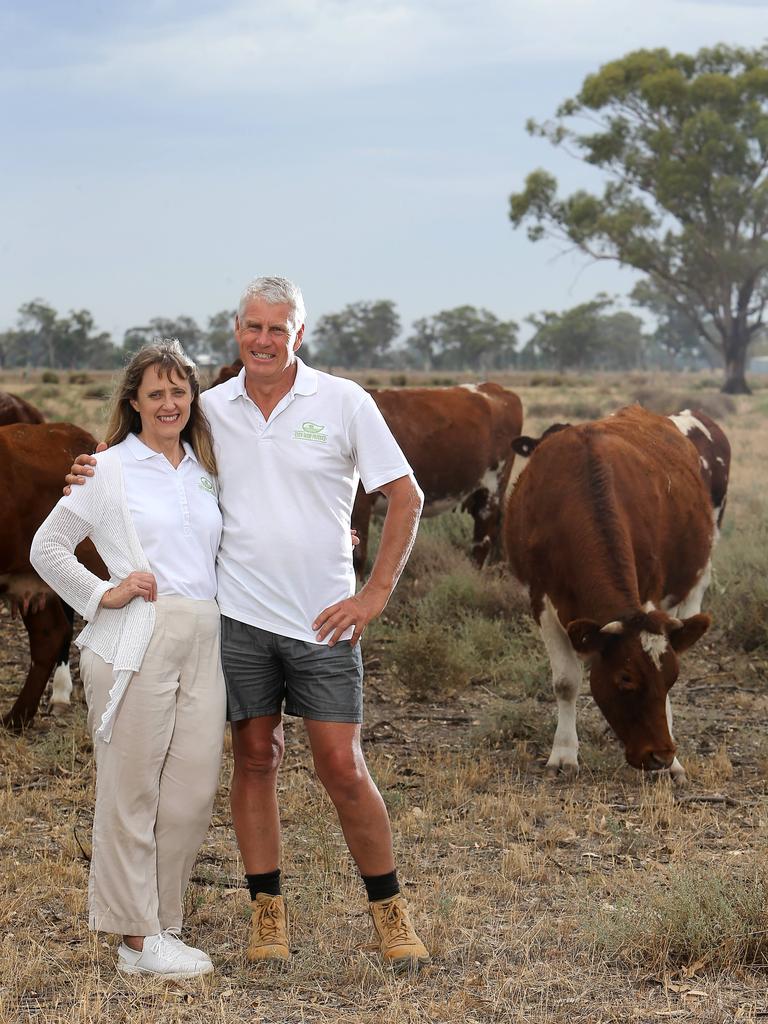
The Baker’s Eden Farm Produce business, started in 2016, is also not traditional, with half of their own-brand meat sold online to customers and delivered from Finley, NSW, to Shepparton. The other half is sold through their on-farm shop, which acts as a one-stop market for biodynamic and organic products, including their own vegies and meat as well as staples from other producers, including bananas to coconut oil.
And while some farmers develop at a slow and steady pace, the Bakers don’t do projects by halves.
Their five-year plan includes a new farm shop, butchery and on-farm abattoir in the near future, with glamping and health retreats a longer-term goal. Workshops already run on the farm as an agritourism sideline.
“We jump in totally as a family,” says Hollie, 30.
Gary attributes his work ethic to growing up on a dairy farm in the district.
“You have to learn to do everything on a dairy yourself and manage your time efficiently,” says the 57-year-old. “Those psychological tests also say I’m a driven personality type.”
Above all, the Bakers are driven in all their farm work by dedication to the environment and sustainability.
Gary says it was after Sue was diagnosed with an auto-immune disease requiring considerable surgery that the couple and their three children dedicated their lives to healthy people on a healthy planet.
“The food we eat can either harm us or do us good and if we had known back in the past what we know now, Sue would not have had to go through a gamut of surgery,” says Gary, who also works off-farm in electronics.
“We know a lot more now about food and health and the impact of chemicals on disease.”
Given this philosophy, it was a no-brainer to convert the Numurkah farm to biodynamics when they bought it in 2001, achieving certification in 2004. Initially they grew food for the family and then expanded to Eden Farm Produce when friends — impressed by the quality of the produce — encouraged the Bakers to sell to the public.
Across all paddocks, biodynamic’s most famous preparation — 500, or cow horn manure — is spread as a liquid fertiliser about twice a year in autumn and then spring, when soil is moist.
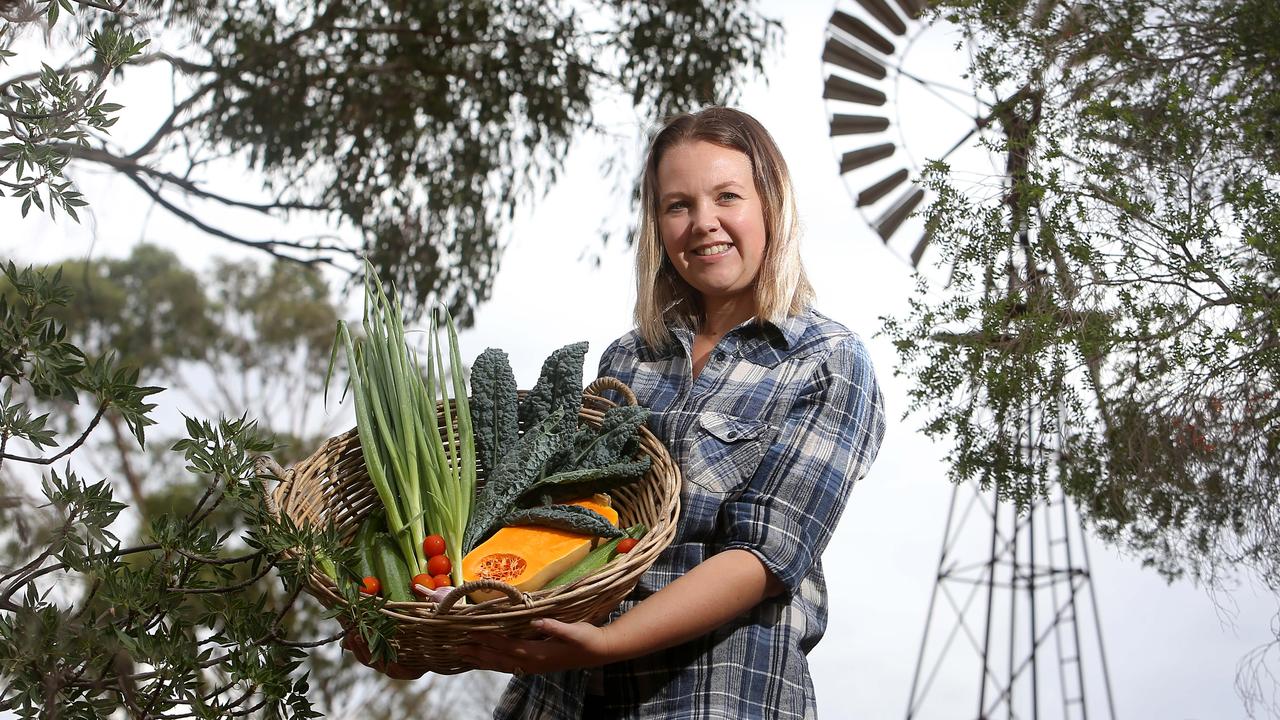
Hollie, a mum of three, studied horticulture at TAFE in Shepparton and worked in a nursery before returning to the farm.
She and her husband, Chris, are in charge of field-grown fruit and vegetable production, with a small shadecloth greenhouse for raising seedlings.
They grow about 20 crops, the largest being multi-coloured corn (2000 plants producing 4000 cobs) and butternut pumpkin (producing 500kg annually).
They also grow kale, spring onions and nasturtiums as salad leaf. On the home farm there are about 20 fruit trees, including apple, apricot, mulberry, pear and fig.
In addition to using 500, Hollie and Chris plant out a mixed green manure crop each year in May, of 70 per cent legumes and 30 per cent grains, such as oats, wheat, broad beans and vetch, which is then mulched and dug into the soil before it flowers.
They use companion plants to minimise the risk of pest attack, interspersing the likes of marigold, thyme and rosemary between crops to attract beneficial bugs.
Hollie attributes the use of 500 and no synthetic inputs to ensuring plant health.
“Because the plants aren’t fed fast-growing fertiliser they are less susceptible to disease — we don’t get powdery mildew for instance,” she says, adding they hand weed all garden beds.
“Nasturtiums, for example, attract a lot of beneficial wasps that feed on grubs that burrow into tomatoes and we have oodles of ladybugs.
“We did have an attack of harlequin beetles one year but I just get the kids to go out and pluck them all off.
“We can see it’s working so there’s simply no need to spray out anything.”
Like Hollie, Gary attributes the use of 500 to ensuring soil and pasture health, and therefore herd health.
“It’s simple — we don’t have synthetic fertiliser and so don’t have animal issues,” Gary says.
To avoid the use of all drenches, vaccines, antibiotics and medications, pastures are strictly rotated with low stocking rates. With no supplementary feed purchased, and no grains used, stock feed is entirely based on grass.
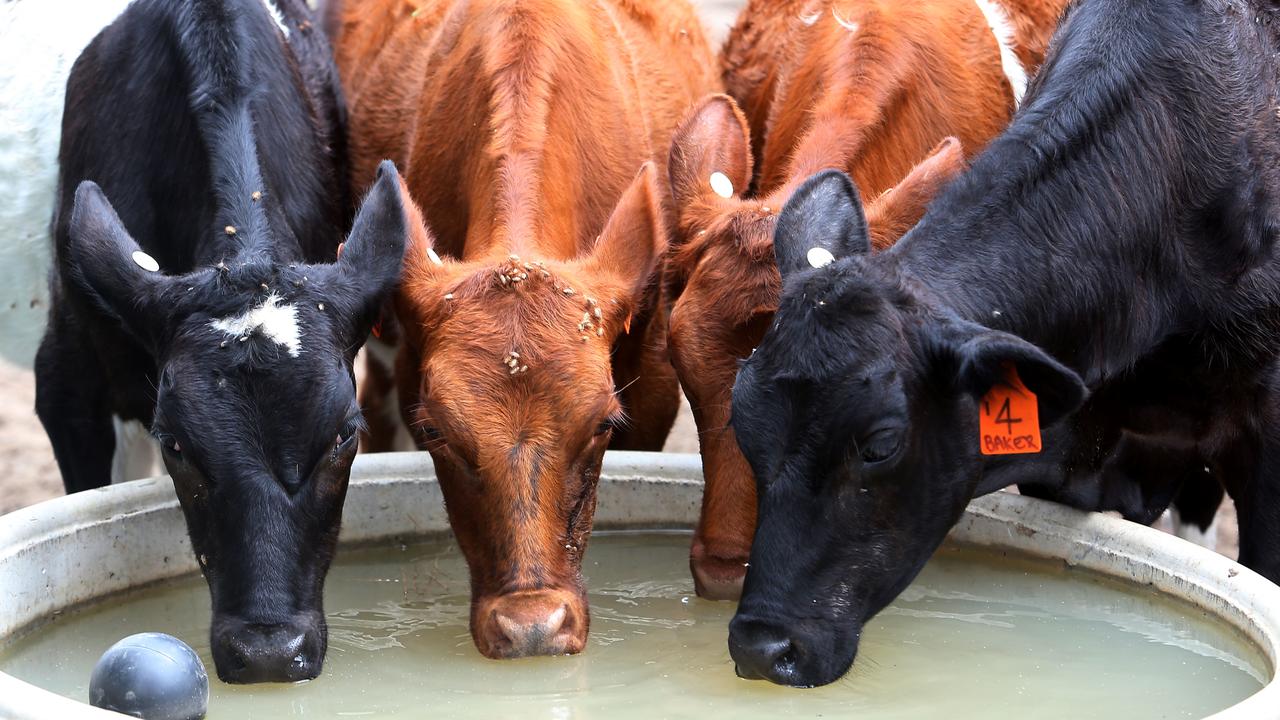
The family constantly improves pastures, with white clover and fescue for irrigated summer pasture, and phalaris or rye grass pasture for other times of the year. Crops of oats are grown from time to time.
Using transportable electric fences, the herd strip grazes paddocks for up to two days.
Numurkah’s average annual rainfall is about 460mm, but Gary says the 2018 total was well down on that, at about 260mm.
About three-quarters of the farm is irrigated from the Goulburn River, but also with bore water irrigation.
Gary says originally he started with Shorthorn cattle because of their meat quality and marbling.
“But I was not happy with their size or their growth rates and Daniel found the Maine-Anjou breed, which is similar colouring to the Shorthorn but a bigger frame and faster growing, as well as being good milker and with good feed conversion.”
The herd is joined three times a year, calving in winter, early then late spring, timed around availability of pastures.
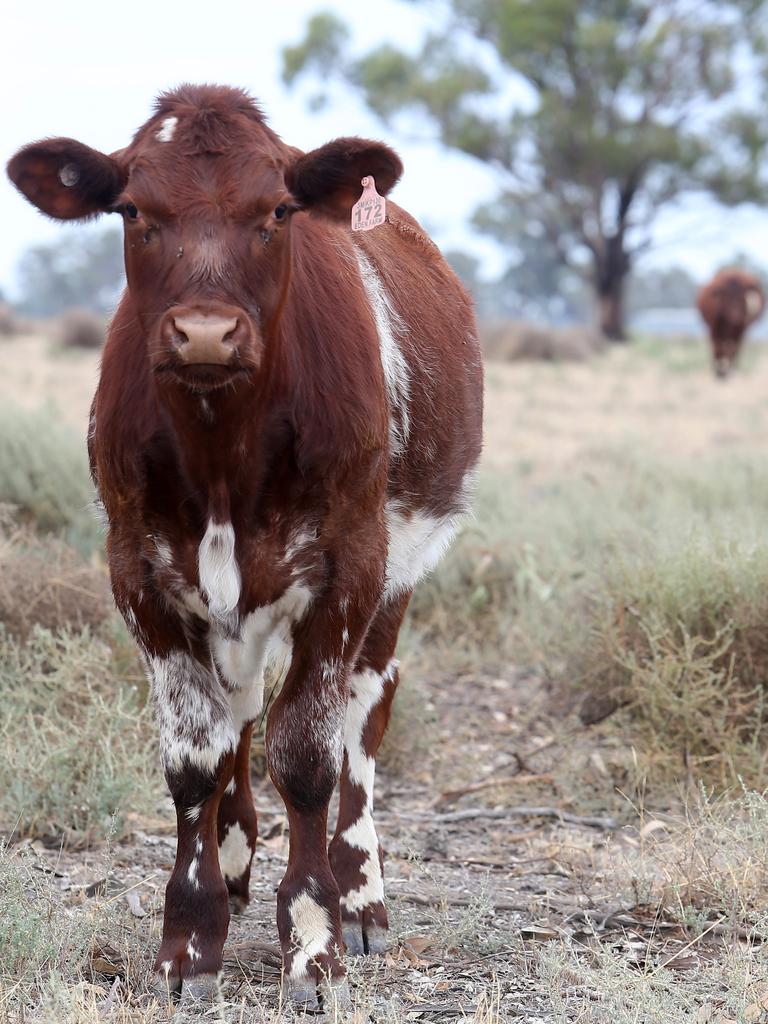
When Eden Farm Produce first started, they processed one head every four months, but now that has increased to one a month.
Cattle aged up to two years, producing a target carcass weight of 300kg, are processed in Wangaratta and then butchered and packaged at Meat on Melville in Numurkah, frozen and sold through the on-farm shop and online.
Generally biodynamic and organic meat fetches a premium at market, but the Bakers are yet to see that premium, with the Wangaratta abattoir not organically certified. Hence their desire to build an on-farm abattoir, which has already gained council approval and where they have permission to process 200 tonnes annually of multiple species.
“We want our own processing so we can sell our meat as certified biodynamic,” Hollie says. “It’s the only link in the chain that we’re missing. Also we want full traceability and to guarantee the animals’ welfare.
“I’ve had some discussions with conventional farmers about biodynamic and organic farming and I think a lot of them think it will be difficult to convert … but when I explain to them because there’s no synthetic inputs it’s much cheaper, with a bit more labour, they can see how achievable it is.
“I think there needs to be more education around it.”
Gary agrees.
“I want people to learn how to keep healthy themselves, to provide resources for people to learn.”
FARM FILE: Eden Farm Produce
The Baker family runs a farm produce business from their certified-biodynamic 60-hectare property at Numurkah, where they rear 50 Shorthorn-Maine-Anjou cross cattle. They sell meat through their on-farm shop and online, with packs from 500g to 55kg. Bulk beef packs start at 13kg for $330. They also grow vegetables and have plans for an on-farm abattoir and butchery.
Where: Numurkah, Goulburn Valley
More info: edenfarmproduce.com.au

